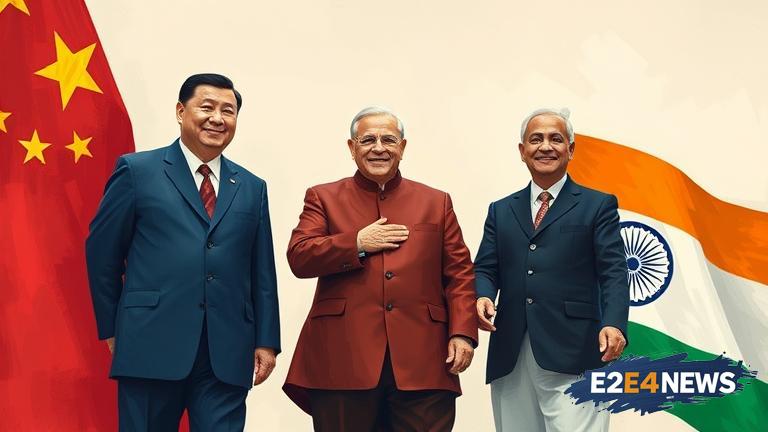In a recent display of unity, Chinese President Xi Jinping, Russian President Vladimir Putin, and Indian Prime Minister Narendra Modi have come together to demonstrate their solidarity in the face of an evolving global landscape. This newfound cooperation among the three nations is seen as a strategic move to counterbalance the influence of Western powers. The meeting, which took place in a cordial atmosphere, highlighted the shared interests and common goals of the three countries. China, Russia, and India have long been major players in regional and global affairs, and their collective stance is expected to have far-reaching implications. The solidarity among the three nations is rooted in their desire to promote multipolarity and challenge the existing unipolar world order. By joining forces, they aim to create a more equitable and just international system. The partnership is also driven by a shared commitment to economic development, security, and cultural exchange. The three countries have agreed to enhance cooperation in areas such as trade, energy, and technology, with a focus on promoting sustainable growth and reducing poverty. Furthermore, they have pledged to strengthen their collective response to global challenges, including climate change, terrorism, and pandemics. The meeting also underscored the importance of respecting national sovereignty and non-interference in internal affairs. In addition, the three leaders emphasized the need for a more representative and inclusive global governance structure. China, Russia, and India have also agreed to promote people-to-people exchanges, educational cooperation, and cultural dialogue to foster greater understanding and friendship among their nations. The solidarity among the three countries is not limited to bilateral or trilateral cooperation; it also extends to regional and international forums, such as the Shanghai Cooperation Organization (SCO) and the BRICS grouping. The partnership is expected to have a positive impact on regional stability and security, as well as on global economic growth and development. However, the solidarity among China, Russia, and India also raises questions about the potential implications for the existing global order and the role of Western powers. As the three nations continue to strengthen their cooperation, they are likely to face challenges and opportunities that will shape the future of international relations. In conclusion, the solidarity among China, Russia, and India marks a significant development in the evolving global landscape, with far-reaching implications for regional and global affairs. The partnership is expected to promote multipolarity, challenge the existing unipolar world order, and create a more equitable and just international system. As the three nations move forward, they will need to navigate the complexities of their cooperation, balancing their shared interests with their individual national interests. The world will be watching closely as China, Russia, and India continue to shape the future of international relations. The meeting between the three leaders has sent a strong signal to the international community about their commitment to solidarity and cooperation. The partnership is likely to have a lasting impact on global governance, international relations, and the future of the world order. The solidarity among China, Russia, and India is a testament to the evolving nature of global politics and the shifting balance of power. As the three nations continue to cooperate, they will need to address the challenges and opportunities that arise from their partnership, including the potential implications for regional and global stability. The partnership is expected to promote economic growth, reduce poverty, and address global challenges, such as climate change and terrorism. In the coming years, the world can expect to see significant developments in the cooperation among China, Russia, and India, as they continue to shape the future of international relations.
